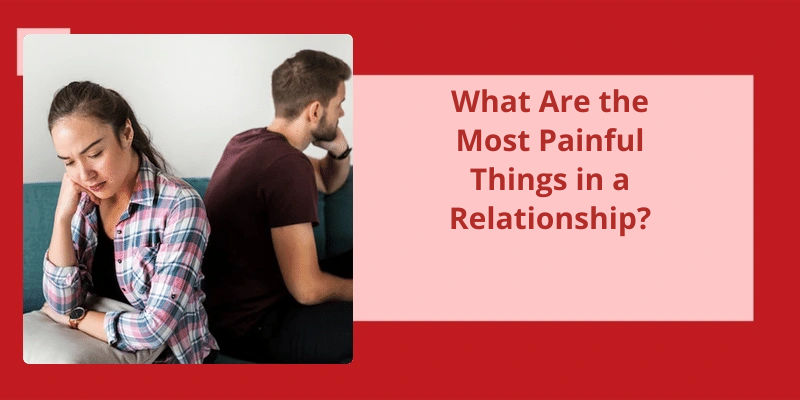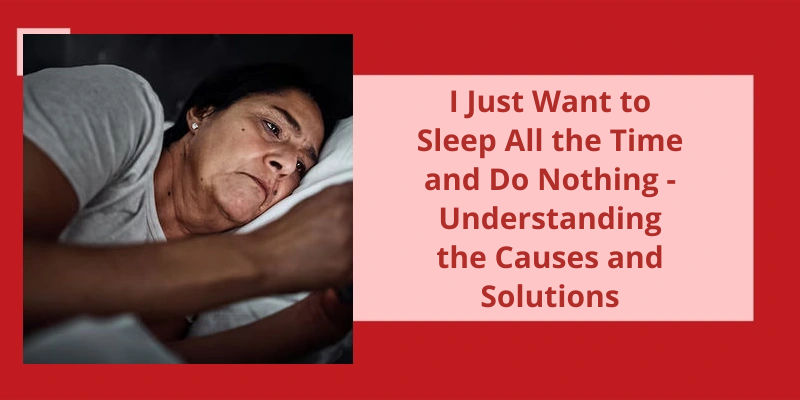Relationships are complex and multifaceted, entailing a range of emotions and experiences that can be both exhilarating and exhausting. While love is often considered the cornerstone of a successful relationship, it isn’t without it’s challenges. In fact, some of the most painful experiences in relationships stem from losing oneself in the process of loving someone too much, and sacrificing one's own needs and desires in the process. When we become too focused on pleasing our partners and meeting their needs, we can easily forget that we’re special and deserving of love and attention too. Whether it's through emotional or physical neglect, infidelity, or simply growing apart over time, relationships can be a painful and tumultuous journey that requires a great deal of self-reflection, communication, and compromise. Ultimately, the most important thing we can do is to remember to love ourselves first, and to prioritize our own well-being and happiness in all of our relationships.
What Is the Painful Part of Love?
The painful part of love is that it requires vulnerability. Love demands that you give your heart fully to another person, exposing all your weaknesses, insecurities, fears and doubts. When you do so, you open yourself up to the possibility of rejection or disappointment. And once you’ve tasted the sweetness of love, the fear of losing it becomes all the more real and painful.
Love also demands sacrifice. When you love someone deeply, you’re willing to make sacrifices, compromise and put their needs before your own. This can be painful when it requires you to let go of your own desires, dreams and aspirations in order to support your loved one. It can also be painful when you see your loved one in pain or struggling, knowing that you can’t take away their suffering.
The transformative power of love is another reason why it can be painful. Love challenges you to grow and become a better version of yourself. This often involves confronting your own shortcomings, weaknesses and flaws. The process of self-discovery and self-improvement can be painful and uncomfortable. It can also be painful when you realize that the person you love isn’t who you thought they were, or when they challenge your own beliefs or values.
When you love someone deeply, the fear of losing them to illness, death or another person can be overwhelming. This fear can manifest as jealousy, possessiveness or insecurity. It can also lead to a lack of trust and self-doubt.
Finally, love can be painful because it isn’t always reciprocated. When you love someone who doesn’t love you back, it can be heartbreaking and soul-crushing. The pain of unrequited love can be all-consuming and can make you question your own worth and value as a person.
It challenges us to confront our own shortcomings and fears, and it exposes us to the possibility of loss and rejection. Without the pain, we’d not appreciate the pleasure, and we’d miss out on the opportunity for growth and self-discovery.
Building a healthy and fulfilling relationship requires effort, time, and patience. However, it isn’t always possible to avoid hurt within a relationship. In this article, we will explore various ways to prevent and address hurt to foster a healthy relationship. These tips are based on expert advice and personal experiences and can help you build and maintain a fulfilling and positive relationship.
How Do I Stop Getting Hurt in a Relationship?
Relationships can be beautiful and fulfilling, but they can also be painful and hurtful. When we invest our time, energy, and emotions into someone, we naturally expect some level of reciprocation, appreciation, and love. Unfortunately, not all relationships end up meeting our expectations, and we end up getting hurt. The first step to stop getting hurt in a relationship is to allow yourself to grieve. Acknowledge your pain and let yourself feel it. You cant heal what you don’t feel, and denying your emotions will only prolong the healing process.
Another important step is to express your feelings clearly. Communication is the key to any healthy relationship, and it’s essential to let the other person know how you feel. Be honest, vulnerable, and non-judgmental when you express your emotions. This will help you understand each others perspectives and work towards a more harmonious relationship.
Accepting your hurt is also crucial in the process of healing. Acceptance doesn’t mean that youre condoning what happened, but that youre acknowledging it’s impact on your life. This will help you let go of the anger, resentment, and bitterness that may be holding you back from moving forward.
Talking to the other person in the relationship is another vital step towards healing. Approach the conversation with an open mind and an intention to understand rather than blame. Discuss what went wrong, what hurt you, and what changes you’d like to see. This conversation can help both of you gain closure, resolve conflicts, and move forward.
Making positive emotional changes is also vital in stopping hurt in a relationship. This can include self-care activities, such as exercise, meditation, and therapy, that can help you build resilience and inner strength. Also, identify your emotional triggers, self-sabotaging behaviors, and negative beliefs that may be sabotaging your relationship potential.
Finally, don’t dwell on the past. Focus on the crucial things in your life, such as your career, hobbies, friends, and family. Take responsibility for your actions, but don’t blame yourself for everything that went wrong. Remember that every relationship is a learning opportunity, and you always have the power to create a better future for yourself. By implementing these steps, youll be on your way to healing from hurtful relationships.
Source: How to Get Over Hurt Feelings in a Relationship: 10 Ways
However, as time passes, things start to get easier and they become more comfortable with each other. But is it really true that the first 6 months of a relationship are the most difficult? Let’s explore this phenomenon in more detail.
Are the First 6 Months of a Relationship the Hardest?
The first six months of a relationship is when you test the waters and find out if your emotions for each other are worth pursuing. One of the most challenging aspects of this period is that you’re constantly discovering new sides of your partner – perhaps some of them not so desirable. Youre also trying to find out if youre compatible in terms of your goals, hobbies and lifestyles.
Another factor that adds to the difficulty is the uncertainty of where things are going. You may feel incredibly connected to your partner but they may be on a different page emotionally. Uncertainty breeds anxiety and can cause you to second-guess if you made the right decision in being together. In some cases, people may lose sight of the other benefits of the relationship – such as laughter, companionship, intimacy and fun.
In the first few months, there may be some insecurities that arise, such as jealousy, possessiveness or fear of losing the other person. This may sometimes lead to tense or awkward moments that can be challenging to navigate. It’s essential to have open and honest communication so that these feelings can be addressed before they escalate into more significant problems.
It’s crucial to communicate openly, focus on the positives, and be willing to work at the relationship. There will undoubtedly be some hurdles along the way, but with dedication and effort, they can be overcome. The bottom line is to remember that a relationship is a journey, and the early stages are just the beginning.
Signs That a Relationship May Not Be Right for You in the Early Stages
- Constant arguing or fighting
- Lack of communication or effort to communicate
- Feeling emotionally drained or unsupported
- Repeatedly ignoring your needs or feelings
- Differing values or goals in life
- Disrespectful or abusive behavior
- Infidelity or lack of trust
- Feeling like you’re compromising too much
- Avoiding spending time together
- Feeling like you’ve to walk on eggshells
In any relationship, it’s natural for hurt feelings to arise at times. However, it’s crucial to understand that it doesn’t necessarily imply that someone is at fault. What’s more important is how couples deal with the situation and communicate with each other about it. Read on to learn about the significance of addressing hurt feelings in a relationship.
Is It Normal to Feel Hurt in a Relationship?
Relationships are complex, with many different factors at play. From communication to compatibility, there are a lot of elements that can impact how two people interact with each other. One of the most common issues that couples face is hurt feelings. Whether it’s because of something one person said or did, or simply due to a misunderstanding or miscommunication, hurt feelings can be a source of tension and conflict in any relationship.
Despite the fact that hurt feelings are a normal part of any relationship, it can be incredibly challenging to address them. Many people are afraid to speak up when they feel hurt, out of fear of causing further damage to the relationship or being rejected by their partner. However, avoiding the issue can often lead to more problems down the road. It’s important for couples to talk openly and honestly about their feelings, even if it’s uncomfortable or difficult.
When someones feelings get hurt in a relationship, it’s important for both partners to take responsibility for their part in the situation. This doesn’t necessarily mean admitting fault or blame, but rather acknowledging that both people have a role to play in how the relationship functions. By working together to understand each others perspectives and find a way forward, couples can learn to navigate even the most challenging situations in a healthy and productive way.
Of course, addressing hurt feelings in a healthy way is much easier said than done. Both partners need to be willing to work together and make an effort to understand each others needs and feelings. This may require compromising, finding common ground, or simply taking the time to really listen to each other. Whatever the case may be, it’s important for couples to show empathy and compassion towards each other, even when things get tough.
Building and maintaining a healthy relationship requires consistent effort and communication from both individuals involved. However, conflicts and hurt feelings are inevitable at times. It’s important to learn effective ways to deal with these situations in order to prevent them from causing irreparable damage to the relationship. So, let’s explore some of the efforts we can take to ease tension and keep feeling close to our partner.
How Do I Stop Hurting Each Other in a Relationship?
Maintaining a healthy relationship requires effort and dedication from both partners. One of the most significant challenges in a relationship is dealing with conflicts and disagreements. The way we handle these issues can determine the success or failure of the relationship. Instead of letting problems fester, it’s essential to address them when they arise. Communication is key, and it’s important to speak honestly and respectfully, without attacking or blaming the other person.
When we feel hurt or upset, it’s important to take the time to calm down before addressing the issue. It’s natural to feel defensive or reactive when our emotions are heightened. But reacting impulsively can make things worse, leading to more hurt and misunderstanding. Taking a break, going for a walk, or engaging in a relaxing activity can help you regain composure and approach the situation more rationally.
It’s also important to be attuned to your own feelings and needs. Sometimes we get caught up in trying to please our partner or avoid conflict that we neglect our own needs. This can lead to resentment and frustration, making it harder to communicate effectively. To avoid this, take time to reflect on your own thoughts and feelings. Be honest about what’s important to you and communicate your needs respectfully.
Changing from a defensive to a receptive state can significantly improve communication in a relationship. When we feel attacked or criticized, our natural response is to defend ourselves. But defensiveness can escalate conflict and prevent the other person from feeling heard. Instead, try to listen with an open mind and heart. Repeat back what the other person is saying to show you understand, and ask questions to clarify.
Our critical inner voice can also affect our relationships. This voice is often negative and judgmental, leading to feelings of self-doubt and inadequacy. It can also impact our relationships by making us more critical and defensive towards our partners. To reject this filter, it’s important to become aware of these negative thoughts and challenge them. Replace negative self-talk with positive affirmations and practice self-compassion.
In a relationship, it’s easy to get caught up in a dynamic where both partners are hurting each other. This can create a cycle of blame and hurt that’s difficult to break. To stop this, it’s important to take responsibility for your actions and drop your half of the dynamic. Instead of focusing on what the other person is doing wrong, focus on what you can do differently to improve the situation.
Finally, it’s important to feel the feeling but do the right thing. This means acknowledging your emotions without letting them control your behavior. It’s natural to feel angry, hurt, or upset at times in a relationship, but acting out of these emotions can harm the relationship. Instead, take a step back, communicate your feelings calmly, and work towards a resolution together. With effort and dedication, it’s possible to create a healthy, fulfilling relationship free from hurt and resentment.
Strategies for Overcoming Communication Barriers in a Relationship
- Active listening
- Using “I” statements instead of “You” statements
- Avoiding assumptions and jumping to conclusions
- Establishing trust through open communication
- Respecting differences in communication styles
- Finding common ground
- Compromising and finding solutions together
- Seeking support from a therapist or counselor if needed
Maintaining a healthy relationship is never easy and it requires patience, effort, and understanding from both parties. One of the hardest hurdles to overcome is the first year, where each partner tries to adapt to each other’s habits and personalities. However, there are ways to ensure that your relationship survives and thrives during this difficult stage.
What Is the Hardest Point in a Relationship?
It’s natural to be infatuated with your partner and have the rose-colored glasses on, but it’s important to realize that everyone has flaws. During the first year, it’s easy to get swept away with the euphoria of being in love, but as time goes on, reality sets in, and the true work of building a healthy, lasting relationship begins.
Communication is key in any relationship, but it’s especially important during the first year. Learning to effectively communicate your needs and concerns can be difficult, but it’s essential as it sets the foundation for a healthy, open relationship. It’s important to be honest and not seethe silently, as resentments can build over time and ultimately lead to the demise of the relationship.
In addition to communication, compromise is vital for navigating the first year of a relationship. Inevitably, there will be disagreements, and it’s important to find middle ground where both parties feel heard and valued. If only one person is making all the compromises, it can lead to feelings of resentment and inequality.
Another challenge during the first year of a relationship is learning to balance independence and togetherness. It can be easy to want to spend all your time with your partner, but it’s important to maintain your own identity and interests. It’s also crucial to give your partner space to do the same. Learning to find that balance takes time and effort, but it’s integral to maintaining a healthy, happy relationship.
Finally, one of the hardest points in a relationship is coming to terms with the fact that it won’t always be perfect. Arguments, misunderstandings, and disagreements will happen, and it’s important to recognize that these don’t signal the end of the relationship. In fact, working through challenges can actually strengthen and deepen the bond between partners. The first year of a relationship may be tough, but with patience, communication, compromise, and a willingness to embrace imperfection, it can also be the start of something beautiful.
Managing Jealousy and Trust Issues in a New Relationship.
This article discusses ways to manage jealousy and trust issues in a new relationship. It highlights the common causes of jealousy and mistrust, and offers tips and strategies for developing healthy communication and building trust with your partner.
Conclusion
Relationships can be incredibly beautiful and fulfilling, but they can also bring about pain and heartache. One of the most painful things in a relationship is losing oneself. It's easy to become so wrapped up in a partner that you forget who you’re and what makes you unique. It's important to remember that you’re special too and to prioritize your own needs and desires. Holding onto your sense of self can also help prevent betrayal and manipulation in a relationship. Ultimately, relationships require work, compromise, and self-reflection, and learning from painful experiences can guide us towards healthier and more fulfilling partnerships.






